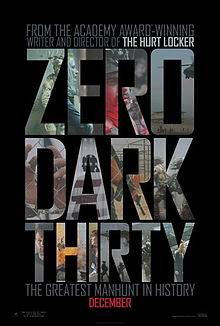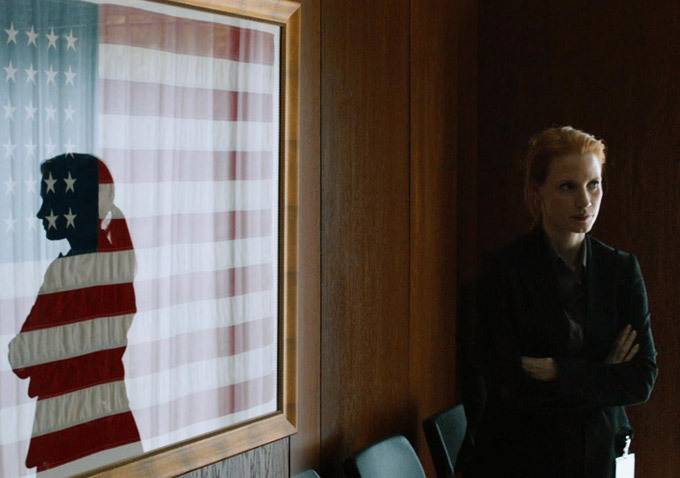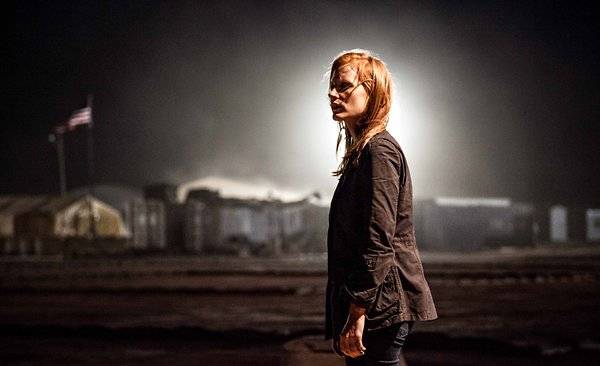 Kathryn Bigelow’s film, Zero Dark Thirty, has elicited heated responses from both the journalistic and Hollywood communities over its depiction of the United States’ use of torture to gain information in the decade-long pursuit, and eventual execution, of the infamous Al Qaeda mastermind Osama Bin Laden. Many news sources are blaming this controversy for her failure to be nominated for an Academy Award for Best Director. The film does unflinchingly present these scenes from an objective lens in the starting moments of the story, showing CIA operatives torturing an initial terrorist suspect in matter-of-fact detail that makes these actions all the more cringe-worthy. While publications like The Huffington Post assert that Bigelow and screenwriter Mark Boal use an accusatory tone in the telling of these controversial fact-finding techniques in the initial hour of the two and a half hour film, both Bigelow and Boal have denied the bias, stating they have presented the facts of this historic event with the intent of letting the viewer decide what is right and wrong. The latter is how I viewed these scenes. It’s more of an autopsy of a successful, but morally complex and messy mission, than an indictment or a condoning of these actions.
Kathryn Bigelow’s film, Zero Dark Thirty, has elicited heated responses from both the journalistic and Hollywood communities over its depiction of the United States’ use of torture to gain information in the decade-long pursuit, and eventual execution, of the infamous Al Qaeda mastermind Osama Bin Laden. Many news sources are blaming this controversy for her failure to be nominated for an Academy Award for Best Director. The film does unflinchingly present these scenes from an objective lens in the starting moments of the story, showing CIA operatives torturing an initial terrorist suspect in matter-of-fact detail that makes these actions all the more cringe-worthy. While publications like The Huffington Post assert that Bigelow and screenwriter Mark Boal use an accusatory tone in the telling of these controversial fact-finding techniques in the initial hour of the two and a half hour film, both Bigelow and Boal have denied the bias, stating they have presented the facts of this historic event with the intent of letting the viewer decide what is right and wrong. The latter is how I viewed these scenes. It’s more of an autopsy of a successful, but morally complex and messy mission, than an indictment or a condoning of these actions.
While many have focused on the subject matter of Bin Laden’s death and the morality and necessity of the methods used to find him, this is ultimately the story of one woman’s evolution and success in a stereotypically male career field. With predominantly male supervisors and political contacts to answer to, this film portrays a woman’s exemplary efforts in leading a historic effort to capture a major terrorist. Jessica Chastain, the actress who portrays this operative has stated she was initially surprised while reading the script to discover that a woman helmed this effort. She was then angry with herself for assuming that a woman could not lead such an effort, and this personal challenge to her preconceptions was a major factor in her accepting the role.
As audience members, we see this entire event through the eyes of Maya, a newly recruited operative, whose first assignment is to aid in the torture and interrogation of the previously mentioned subject. Chastain, Hollywood’s current “it” actress of the moment, portrays these initial scenes with both a new recruit’s natural insecurity of handling her first “real job” and a humanity and empathy for the victim, a humanity she must overcome if she is to do her job effectively. The close-ups on Maya’s evolution from green recruit to seasoned operative is the true heart of Zero Dark Thirty, and the journey she takes from these initial moments to her final reaction to a successful completion of her assigned task show the depths of Chastain’s considerable talent. This is an actress who in a few short years has made us both laugh and cry in The Help, has portrayed a wife enduring the fanatical ravings of her conservative spouse in Take Shelter, and has radiated a beatific heroism as the mother-figure in Tree of Life. With Zero Dark Thirty, Chastain solidifies her place as a formidable lead actor reminiscent of a young Meryl Streep. Each gesture and facial nuance is effortless and her performance gives the character both a subtle grace and a growing intensity that convinces the most skeptical of her male cohorts to trust her analysis of the situation and to allow her to lead them. It is a performance of subtle power and raw emotion that takes the audience effortlessly through a decade of this woman’s life and a nation’s grief and revenge. This is not a stereotypical gender study of a woman rising above adversity in a male-dominated field, but the study of a woman working with male and female co-workers on an equal level at a defining moment in our country’s history. Chastain navigates the performance with a seasoned and laser-precise performance that deserves every accolade it has garnered.
 Bigelow’s direction and Boal’s screenplay surpass the excellence of their much lauded previous effort, The Hurt Locker. While that piece was more of a psychological study and action film with many traditional, yet effective plot devices strewn throughout the work, Zero Dark Thirty achieves the same rollercoaster ride of adrenaline pumped intensity by simply telling the story of a historic event and the people behind it. Rather than focusing on politicians and their initiatives, the film takes us into the trenches to see the cost and personal risk of this effort. Lives are lost, emotions are blunted and strained, and not every participant is up for the final moments of this journey. It is a stark and pulse-pounding achievement and, while other reviewers I’ve consulted found the film sluggish and boring, I personally found this film an energetic and eloquent retelling of a defining moment in our country’s current history. Both Bigelow and Boal deserve major credit for their effective and unflinching storytelling.
Bigelow’s direction and Boal’s screenplay surpass the excellence of their much lauded previous effort, The Hurt Locker. While that piece was more of a psychological study and action film with many traditional, yet effective plot devices strewn throughout the work, Zero Dark Thirty achieves the same rollercoaster ride of adrenaline pumped intensity by simply telling the story of a historic event and the people behind it. Rather than focusing on politicians and their initiatives, the film takes us into the trenches to see the cost and personal risk of this effort. Lives are lost, emotions are blunted and strained, and not every participant is up for the final moments of this journey. It is a stark and pulse-pounding achievement and, while other reviewers I’ve consulted found the film sluggish and boring, I personally found this film an energetic and eloquent retelling of a defining moment in our country’s current history. Both Bigelow and Boal deserve major credit for their effective and unflinching storytelling.
The film has wonderful supporting performances by a stellar cast, including noteworthy turns by Jason Clarke, Reda Kateb, Jennifer Ehle, Kyle Chandler, Joel Edgerton, and Chris Pratt. The last thirty minutes of this film are told virtually in real time and, even though we all know the resolution of this story, it’s a nail-biter to the very end. This is a film and a subject to debate and wrestle with, both as a viewer and as a nation. There are no easy methods for dealing with an enemy that doesn’t follow the rules, and there are no easy answers to the cost of altering our ideology to produce a victory. This film does a masterful job of relating the facts, with a narrative license or two, and allowing the audience to determine what the final outcome means for us as a nation. It is a serious examination of a complex issue, and I view it as one of the best films of the year.
Zero Dark Thirty is now playing at Goodrich Savoy 16 and Carmike Beverly Cinema 18.








